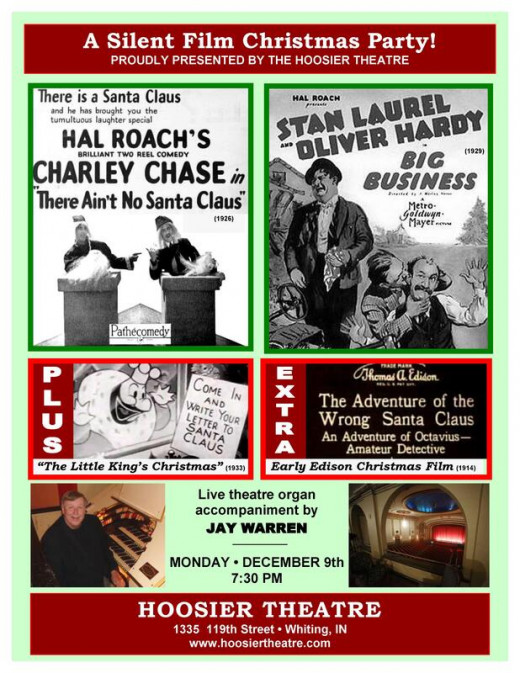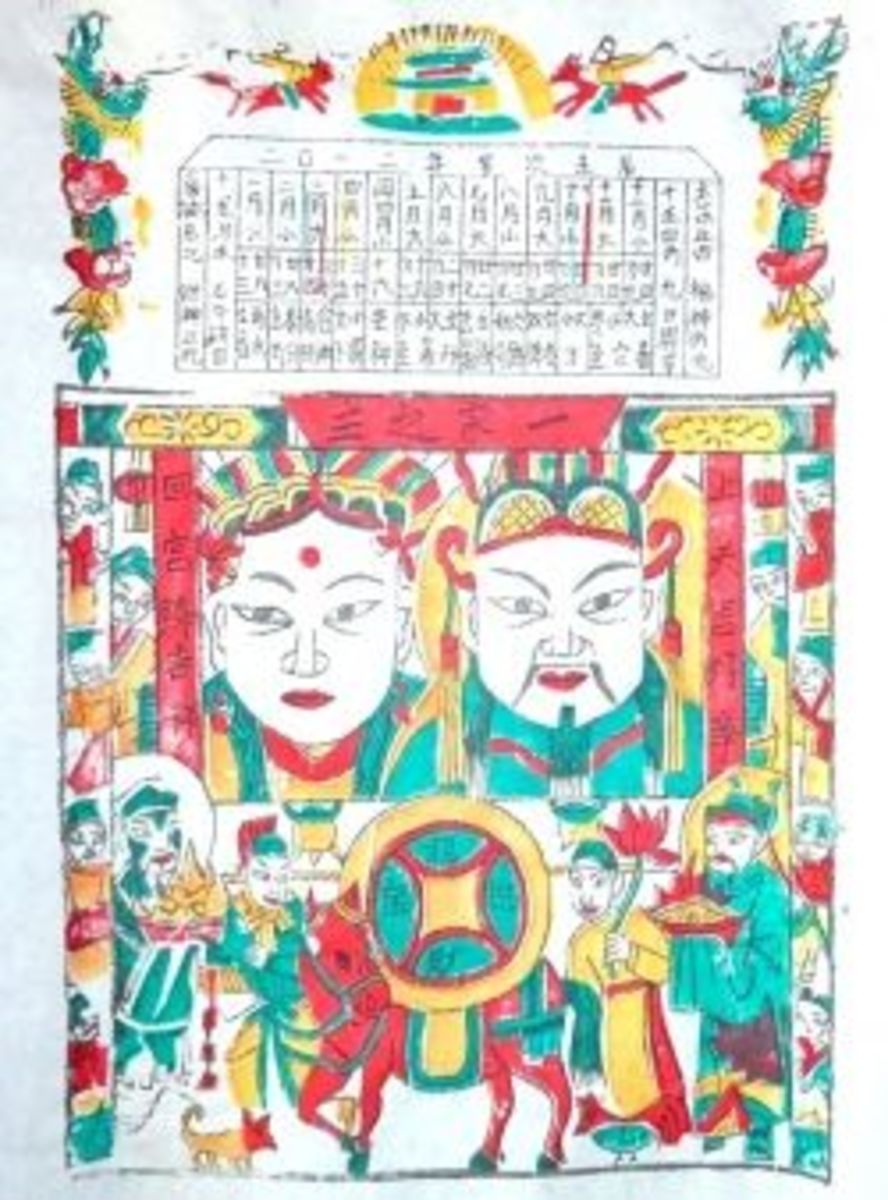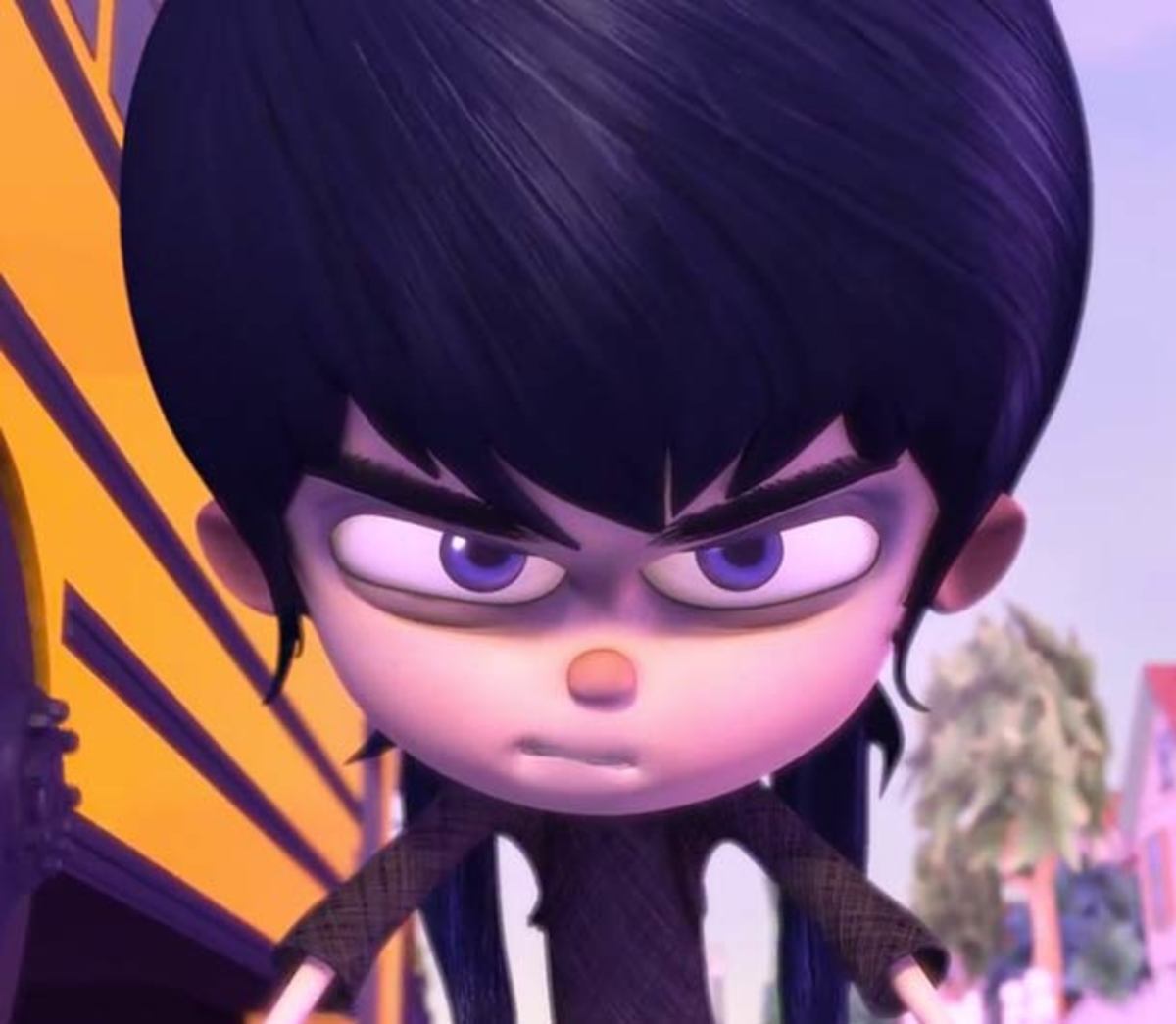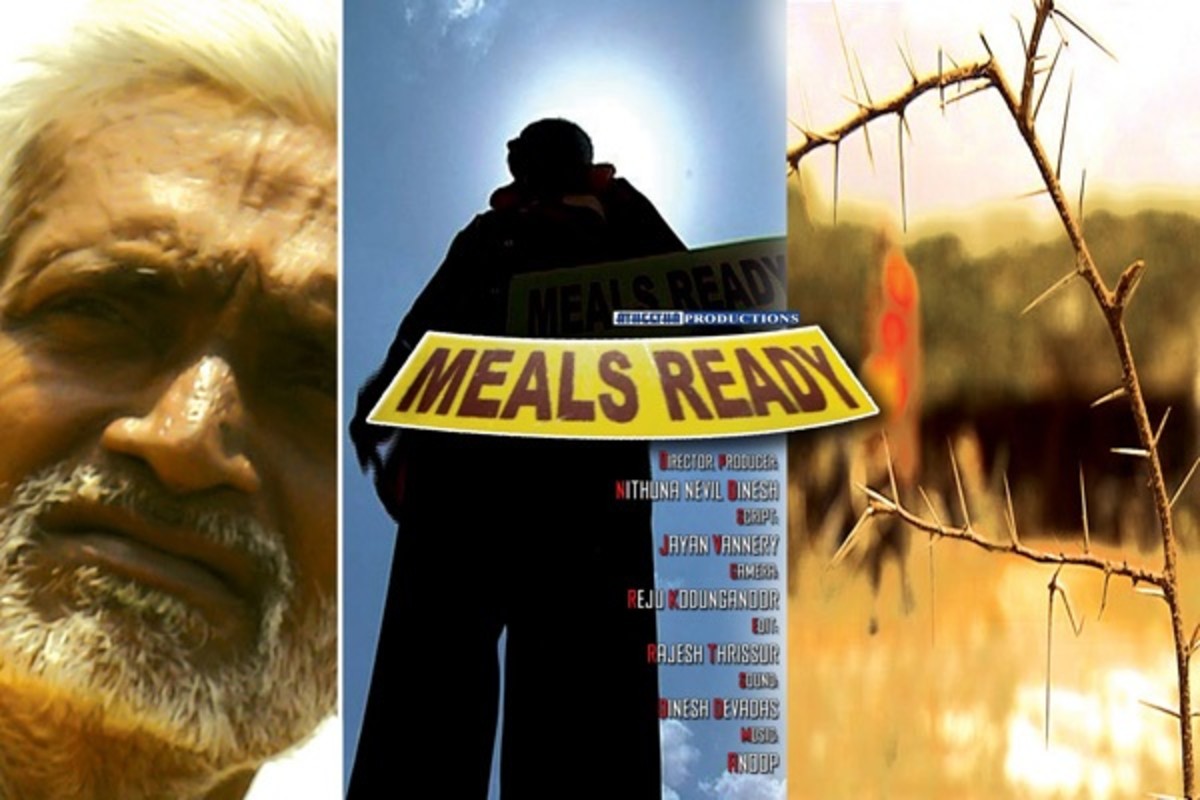Yuletide Silents At The Cinema: Five Fun Silent Shorts

Introduction
Whenever I have the opportunity to see Jay Warren perform, I take it. Warren is the organist and president of the Silent Film Society Of Chicago, which helps to recreate the silent film experience for 21st century moviegoers. He makes his way to my local theater, which opened during the Vaudeville era, three or four times per year. While he often brings comedy to the venue, Warren brought a series of five Yuletide-related comic shorts to his most recent visit. As usual, he also brought his portable organ, which recreates an old-fashioned pipe organ. Anyone can see these films, all of which are now in the public domain, on YouTube. Some of the situations in these shorts may be archaic to a modern audience, but at least a little bit of the inherent humor remains, as the audience enjoyed the program.
"The Little King's Christmas" (aka "Christmas Night" aka "Pals")
The opening short was one of two animated pieces, and was the most recently-released short subject of the evening. The 1933 cartoon was produced by the short-lived Van Beuren studio, and is also available in sound. However, Warren brought a print with title cards. "The Little King's Christmas," based on the comic strip that seldom had words by Oscar Soglow, lends itself to the Warren treatment because the only spoken lines come from a department store Santa Claus. The story involves the king going on a shopping trip, where he encounters two down-on-their luck men, and invites them to spend the holiday at his castle. In one sequence, one of the men sports a National Recovery Administration tattoo, which was a New Deal agency focused on creating fair business practices. This cartoon proves that even big kids love their toys.
The Little King's Christmas (sound version)
"The Adventure Of The Wrong Santa Claus"
This short from the Edison Company premiered in 1914, making it the oldest short featured in the show. "The Adventure Of The Wrong Santa Claus" was based on a story by Frederic Arnold Kummer, who wrote of magazine stories involving an amateur detective named Octavius (Barry O'Moore). In this one, Octavius receives an invite from friend Bertha Randall (Bliss Milford) to spend Christmas with her, her husband, and their children. It also gives the man a chance to meet Bertha's sister-in-law Grace (Elsie MacLeod). Bertha also asks Octavius to play Santa for her children, even offering a Santa suit for his use. He brings his own instead, which leaves a burglar (John Sturgeon) the opportunity to use the suit to steal the gifts. While the burglar manages to lock Octavius in a room, he escapes and promises the already-alarmed Bertha that he will get the thief, which involves him trying to make his getaway by train. This entry would ultimately be the final film entry in the Octavius series.
The Adventure Of The Wrong Santa Claus
Easter Seals PSA
Easter Seals PSA
In the middle of the show came a 1925 came a public service announcement from the people at Easter Seals. The spot humorously shows a man trying to cram as much as possible into the course of one day as possible, with predictable results. It's a nice way for the organization to promote equal portions of work, rest, and play in order to make the most of the Christmas season.
Easter Seals PSA (1925)
There Ain't No Santa Claus
This 1926 short stars Charley Chase as Charley, a young husband with a Christmas Eve dilemma. He wants to make his Christmas a merry one for his wife (Eugenia Gilbert) and daughter (Jane Eloise Elliot), but he's a little short on cash. He has had his eye on a watch for his wife, which costs as much as his rent. On top of that, his landlord, Noah Stout (Noah Young) wants his money at that moment. Charley stalls, but Noah follows Charley to the jewelry store, and watches as his tenant inquires about buying the watch. Charley notices, and ultimately gives Noah the slip with the gift. Once home, Charley garners the attention of Noah's son (Mickey Bennett), who tells his dad. Noah finds the watch, and leaves Charley a note he has taken it as the month's payment. There's something that neither know about the gift, though.
This is my favorite of the pictures because it has a relatable story and plenty of humor in Charley's efforts to get the gift, a tree, a turkey, and his bike home in one piece. Some might gripe that Charley put himself before his responsibility, but Noah does come on a bit too hard-nosed. The direction comes from Chase's brother, James Parrott, who uses the family's actual name. "There Ain't No Santa Claus" was produced by Hal Roach during the later part of his time with Pathe Studios.
There Ain't No Santa Claus
Big Business
The final film of the evening was another Roach-produced short featuring two of Roach's biggest stars - Laurel & Hardy. In this, Stan and Ollie try to make a go as Christmas tree salesmen, only to find no takers. A small misunderstanding between the pair and a homeowner (James Finlayson, a frequent Laurel & Hardy co-star) escalates into a small war as the two factions attempt to get back at one another. The mayhem continues, even as a cop (Tiny Sandford) stops to take notes for his report, wisely choosing to not intervene until the factions take a break from their mayhem. I like the escalation of events in "Big Business," but this short is more of a vignette than a screen story.
The direction came from two men who did many a comedy at the time - James W. Horne and Leo McCarey. Separately, these directors worked with other comic talents of the time, including Buster Keaton, the Marx Brothers, and the kids of Our Gang. The cinematographer of this film was George Stevens, who would become a two-time Oscar-winning director. The films that earned Stevens these distinctions were A Place In The Sun (1951) and Giant (1956).
Big Business
Conclusion
As Warren stated at the end of the evening, he thought these pictures provided an interesting look at the way people saw Christmas in the early part of the 20th century. I couldn't agree more, and I look forward to his next visit filled with good fun and good music.
© 2019 Pat Mills








